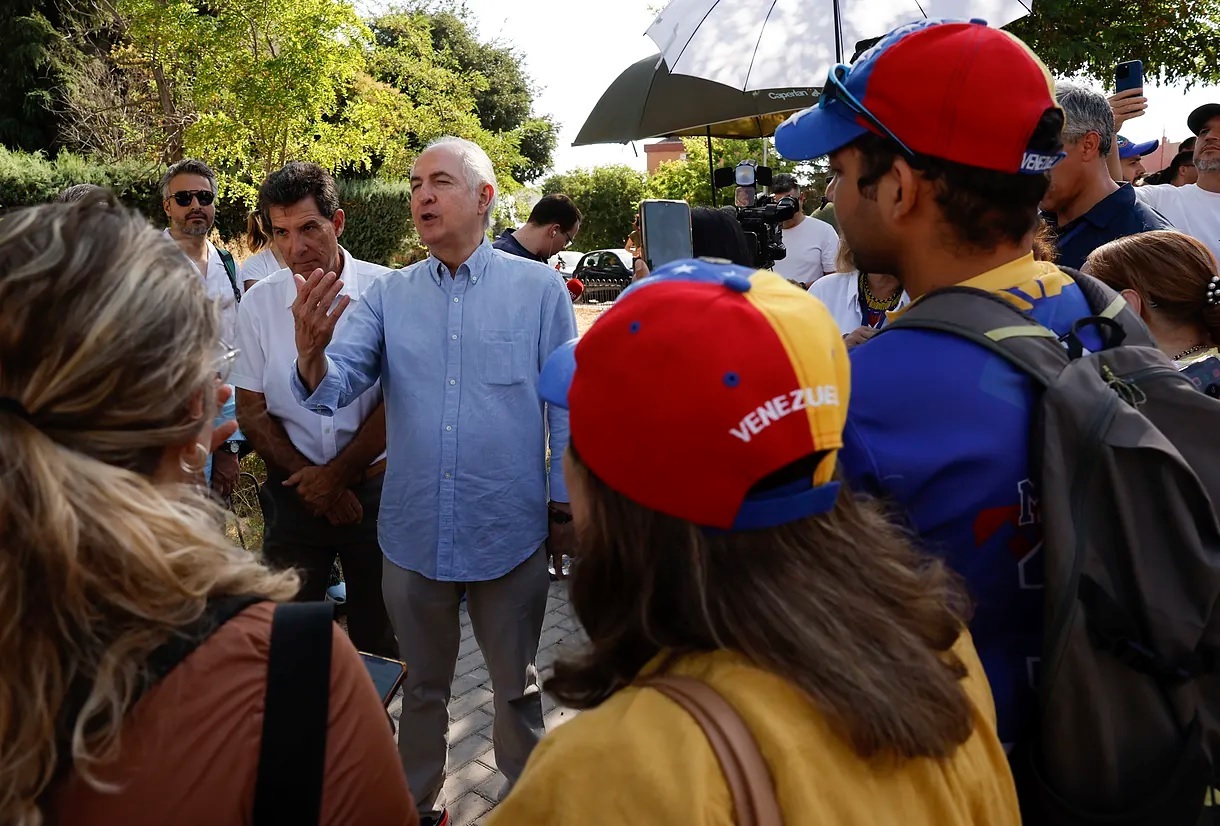"It's not that they didn't let me vote, it's that they didn't even let my wife and me register. But this will not prevent the truth from shining, we will have democracy in Venezuela and we also thank you, kind-hearted Spaniards, who want freedom for Venezuela," he stated to this newspaper at the polling center, where he had not been allowed to register previously to exercise his voting right. The requirements imposed by the Chavismo have greatly reduced the number of Venezuelans who can vote abroad. Only 69,000, according to opposition sources. In Spain, there are 25,000 voters.
"Venezuelans are voting with absolute normality, with a demonstration that exalts the Venezuelan nationality," he told the media. These presidential elections could put an end to the Chavista regime that has been in power since 1999, hence their importance.
"I can't imagine the high officials of the National Armed Forces shooting at Venezuelans, among whom their own family members will be confused," Ledezma explained.
"And I want to take this opportunity to send a message to General Padrino López: a great responsibility rests on your shoulders. You are the Minister of Defense, I can't imagine you carrying a scar on your face forever. Those of you who obey Maduro's orders are budgeting for a bloodbath in Venezuela," he emphasized on a day that has already been marked by problems with the media and graphics.
The Venezuelan Embassy in Madrid prevented both of them, including this newspaper which had previously been accredited, from entering the polling center set up in the Aluche district in the city of Madrid. This was done with an email at 5:50 in the morning without providing any explanation other than that audiovisual resources could be downloaded from a link distributed by the embassy itself.
"This is not Spain, it's Venezuela," mentioned from the security of the center, where voters were also allowed to enter with caps and flags of the country. "You have to behave like a meek lamb to exercise your right to vote, it's unbelievable," commented Adriana Díaz, one of the Venezuelan citizens who had come. Another, Oriana Mariño, expressed confidence that today there could be "a significant change for freedom and democracy" and thus "put an end to this era of fear engendered by Maduro."
It is estimated that more than 9,000 displaced Venezuelan citizens will come to this polling center in the capital of Spain. Among them will not be another main opponent of Chavismo, Leopoldo López, who is in Washington. Nor his father, the Popular Party Euro MP, Leopoldo López Gil, who like Ledezma, has also been unable to register to exercise his voting right. Present in the vicinity of the center was the deputy of the National Assembly of Venezuela for the state of Aragua, Ismael García.
Many citizens have also gathered at the doors of the Electoral Center despite not having the right to vote. "The regime has wanted to prevent that desire to vote, but what they can't take away from us is the emotion and unwavering faith to change things," said Ismael, without a vote but with hope and the flag of his country around his neck. "Of course, I would return to Venezuela if there were a change. To that Venezuela that our parents told us about when we were young, free and prosperous," he emphasized.
Magdalena Aguiar was in the same situation. "Maduro, you're ready. We are voting," shouted the woman distributing ballots against the Chavista regime. "These dogs didn't let me register because I don't have nationality. But what does nationality have to do with indemnity? They should explain it to me," she criticized.
It wasn't just Venezuelan citizens who gathered at the center's doors, local residents and Spanish compatriots also joined their demands. "Democracy must be fought for every day, we cannot give it away or take it for granted. That's what brings me here, that someday it could be us, and we have to support them. The key is a massive vote to prevent fraud," explained Eduardo López, who despite his Spanish nationality, feels connected to the Venezuelan "struggle."
